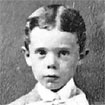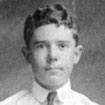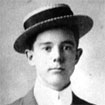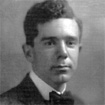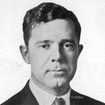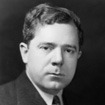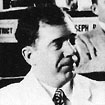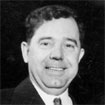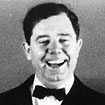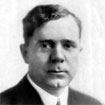
Life & Times — Introduction
1920s Louisiana was a powder keg of injustice, and Huey Long was a lightning bolt. The unique influences of his background collided with the oppressive social conditions of his times to produce an explosion of change.
Huey Long grew up on a farm in the poorest part of Louisiana. He came from a large, comfortable family in a small, close-knit community. It was the perfect combination to foster self-confidence and compassion in a precocious boy. His home was a haven of security, faith, and education, which provided him with all the fundamentals to succeed. Meanwhile he was sadly aware that many of his poor friends and neighbors had no opportunity at all.
His brilliant mind and boundless energy caused Huey to hopscotch through life, skipping every other step. With a modicum of formal education, a dab of experience, and a sense of urgency, Huey charged into politics on a mission to help the poor. He began by cutting train fares and utility rates in his first public office and rapidly developed a state-wide reputation as a champion of the common man.
Over the formidable opposition of the entrenched political establishment, an unfriendly press, and the Ku Klux Klan, Huey rose to the governorship on the shoulders of Louisiana's masses in 1928. Thwarted each step of the way by the powerful elite, he transformed the physical and political landscape of Louisiana, providing roads, bridges, free school books, public education, healthcare, and equal access to the voting booth for all.
Halfway through his term as governor the Great Depression swept the entire nation. Believing that his “Share Our Wealth” program was the cure for the country's ailing economy, Long quickly won a United States Senate seat to take his plan to all of America's poor. When both the Democratic and Republican parties refused his program, Long positioned himself as a third-party challenger in the 1936 presidential election.
Huey Long was caught in a race against time that he could not win. Unable to stop him by legal means, his enemies resorted to violence. Threats, assassination plots, and physical attacks against himself and his family beleaguered him.
On September 8, 1935, Huey Long was shot in the corridors of the Louisiana State Capitol that he built. He died two days later. More than 200,000 grateful mourners attended his funeral. He is buried on the Capitol grounds, where a statue depicts his remarkable achievements.
- Next page
- Childhood
Huey Long Timeline
Childhood
1893 to 1899
From an early age, it was evident that Huey Long was a true original.
Learn more about Huey's remarkable childhood.
Education
1900 to 1915
Huey circumvented many barriers to education and managed to become a lawyer without receiving a single diploma.
Learn more about Huey's unorthodox education.
Early Career
1910 to 1918
Huey began his career as a traveling salesman before becoming a lawyer. These experiences laid the foundation for a future in politics.
Learn more about Huey's early career.
Entry Into Politics
1918 to 1928
Huey made a splash in politics by fighting corporate monopolies and utilities. He became a major force in state politics and ran for governor in 1924.
Learn more about Huey's entry into politics.
Campaign for Governor
1928
Huey successfully ran for governor, revolutionizing Louisiana politics.
Learn more about Huey's historic campaign for governor.
Governor
1928 to 1932
As governor, Huey launched an unprecedented program to build the state's infrastructure and provide education and economic opportunity to the masses.
Learn more about Huey's achievements as governor.
Impeachment
1929
The oil industry led an unsuccessful attempt to remove Huey from office.
Learn more about the impeachment debacle.
Senator
1930 to 1935
Huey successfully ran for the U.S. Senate and quickly became a national force with his Share Our Wealth movement.
Learn more about Huey's rise to national prominence as a U.S. Senator.
Presidential Candidate
1934 to 1935
Huey's Share Our Wealth movement swept the nation, and he prepared to run for president in 1936.
Learn more about Huey's presidential candidacy.
Assassination
September 1935
Huey was assassinated by a political enemy, shocking the nation.
Learn more about Huey's assassination.

